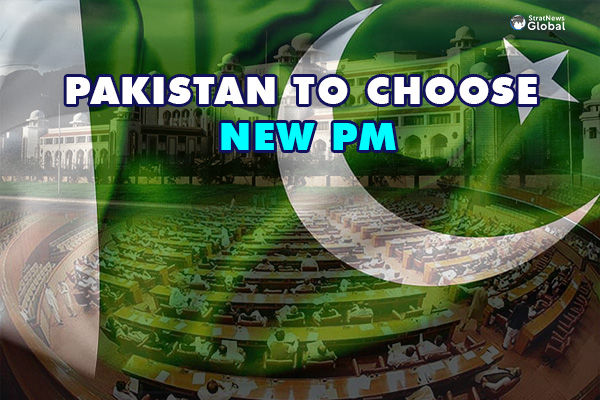Pakistan’s newly elected members of Parliament are likely to meet on February 29 to choose a new prime minister, Geo News, a television news channel reported.
Shehbaz Sharif is expected to become the next PM after the Pakistan Muslim League-Nawaz (PML-N) and the Pakistan People’s Party (PPP) decided to share power in order to form the next government.
In a joint press conference last week, PPP chairman Bilawal Bhutto-Zardari and Shehbaz Sharif had announced nominating Sharif for prime minister’s post and Asif Ali Zardari for the post of president.
According to the Pakistani constitution, the first session of the newly-formed parliament needs to be called before February 29. After members have taken oath, a new speaker and deputy speaker would be elected through a secret ballot. The new speaker will then announce the election of the PM for which 169 votes are required in the 336-strong house.
Sharif is likely to come up against Imran Khan’s nominee for prime minister — Omar Ayub Khan, the grandson of former military dictator Ayub Khan.
Independent candidates backed by Pakistan Tehreek-e-Insaaf emerged as the single-largest block winning 101 national assembly seats. The PML-N won 75 seats while the PPP came third with 54 seats. Imran Khan had been barred from contesting polls and is facing a lengthy jail sentence in multiple cases.
The incoming prime minister faces a series of challenges and that includes the immediate task of negotiating with the International Monetary Fund (IMF) for a new loan.
Last year, Pakistan faced the threat of default, with foreign reserves coming down to $4.4billon – barely covering a month’s worth of imports. The then PM Shehbaz Sharif had managed to secure a crucial bailout package from the IMF – just weeks before the government’s term expired.
Pakistan’s debt has soared since 2007 as authorities failed to invest borrowing from international bondholders and countries, including China, into productive sectors.
In a career spanning three decades and counting, Ramananda (Ram to his friends) has been the foreign editor of The Telegraph, Outlook Magazine and the New Indian Express. He helped set up rediff.com’s editorial operations in San Jose and New York, helmed sify.com, and was the founder editor of India.com.
His work has featured in national and international publications like the Al Jazeera Centre for Studies, Global Times and Ashahi Shimbun. But his one constant over all these years, he says, has been the attempt to understand rising India’s place in the world.
He can rustle up a mean salad, his oil-less pepper chicken is to die for, and all it takes is some beer and rhythm and blues to rock his soul.
Talk to him about foreign and strategic affairs, media, South Asia, China, and of course India.





